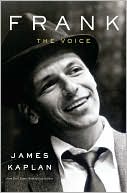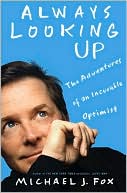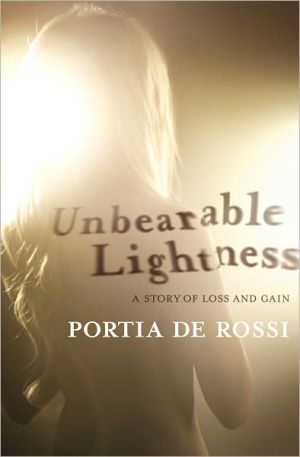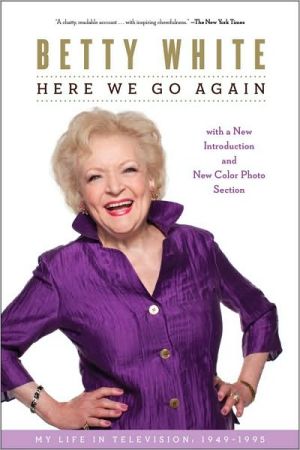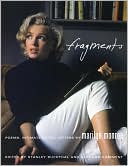True Grace: The Life and Times of an American Princess (Thomas Dunne Books)
On the twenty-fifth anniversary of Grace Kelly’s death, New York Times bestselling author Wendy Leigh has written a haunting celebration of a life that ended far too soon, starring a heroine whose dramatic, star-crossed story is both tragic and inspiring.Her Serene Highness, Princess Grace of Monaco, the legendary Hollywood screen siren Grace Kelly, is an American icon whose beauty is unrivaled, and whose oft-imitated aristocratic style and cool elegance have never been eclipsed....
Search in google:
On the twenty-fifth anniversary of Grace Kelly's death, New York Times bestselling author wendy Leigh has written a haunting celebration of a life that ended far too soon, starring a heroine whose dramatic, star-crossed story is both tragic and inspiring. Publishers Weekly Grace Kelly's public persona sounds glam: a Hollywood star marries royalty. But behind the cameras were decades of unhappiness and a lonely death. And in this well-researched biography, Leigh (Prince Charming: The John F. Kennedy, Jr., Story) presents Kelly as the daughter of a self-made millionaire known for his philandering and emotional indifference. Yet she was eager to impress him and longed for attention. She found it onscreen and in a series of affairs with older, married men: Ray Milland, Bing Crosby, Gary Cooper and the Shah of Iran. In fact, according to Leigh, she had affairs before and after her marriage. Kelly looked cool, but she was sexually aggressive a subject that Leigh doesn't shy away from. The mystery is why the Oscar winner chose Prince Rainier, the ill-tempered, cash-strapped ruler of a tiny principality. It wasn't a love match: Rainier got a $2 million dowry, while Kelly's glamour turned a dissolute country into a playpen for the rich and famous. Kelly hoped to keep her career and was crushed when she realized marriage had trapped her. She could divorce but she couldn't take her children. Leigh makes certain to note Rainier's infidelities along with chronicling Kelly's history, acting career and charitable work in Monaco. (Apr.)Copyright 2006 Reed Business Information.
True Grace\ The Life and Times of an American Princess \ \ By Leigh, Wendy \ Thomas Dunne Books\ Copyright © 2007 Leigh, Wendy\ All right reserved.\ ISBN: 9780312342364 \ \ \ Chapter One The Kellys Jack Kelly was a macho all-American male in the John Wayne, Gary Cooper, Clark Gable mold. Six foot two, with a muscular body and a wry sense of humor, he rippled with charisma, exuding power and the confidence of a man who has no doubt whatsoever that he is destined to dominate everything and everyone in his exalted universe. “Jack Kelly was a big man, an extraordinary force. Very good-looking, a terrific personality who always had to be center stage and treated everybody else as a secondary player in his life,” remembered Grace’s friend and bridesmaid, actress Rita Gam. Even when Grace became world famous as Princess Grace of Monaco, she was still viewed by her father as being relatively insignificant, her life and desires forever subservient to his own. Yet Grace’s love for her father was so profound that she uncomplainingly accepted her lowly status in his life and after his death insisted, “I only have only the most wonderful memories of him. His motto was: ‘Never be the one who takes and gives nothing in return. Everything must be earned, through work, persistence, and sincerity.’ ” But while John Brendan Kelly—a Democrat and a politician to his well-manicured fingertips—wasbrilliant at projecting the illusion that he was a self-made man who had pulled himself up by his own bootstraps, luck and a solid middle-class Irish family background had played a large part in elevating him from failed political candidate to a Philadelphia legend that lives on today in a city where Kelly Drive commemorates the entire Kelly family and not just the late Academy Award–winning actress. A myth maker, with a talent for self-promotion much like that demonstrated by his fellow Irishman and friend Joe Kennedy, Jack was always eager to relate to the press the story of his family’s humble early-nineteenth-century origins, their spectacular rise from Drimurla Farm, County Mayo, on the edge of Leg o’ Mutton Lake, in the wilds of Ireland to power and prestige in Philadelphia. In 1956, he recalled to a journalist, “There were five boys in the family and not much money to spare. It was plain to my grandfather that he could not educate them all, so he called them together one day and said: ‘Boys, we are going to put the oldest one of you through school, but the rest will have to stay and work the farm and contribute a share to Pat’s schooling. At least one Kelly will be educated.’ So Pat went to school, and ended up the dean of Dublin University. My own father, John Henry Kelly, never had a day in school himself, but he had a wonderful memory.” Grace, as it turned out, inherited her grandfather’s talent, and throughout her career she invariably dazzled her contemporaries in television, the theater, and Hollywood with her virtually photographic memory that enabled her to learn a script by heart after studying it for only an extremely short time. From her grandfather she also inherited a toughness of mind and a determination to follow her own path, whatever obstacles she might encounter, whatever the cost. By 1868, Grace’s grandfather, John Henry Kelly, had survived the harrowing voyage to America in steerage, settling in Rutland, Vermont, where, a year later, he married seventeen-year-old Mary Ann Costello, who had also emigrated from County Mayo in search of a better life in the New World. By the early 1870s, eager to make a success in his newfound country, John Henry first toiled on the railroads, then moved his family to Philadelphia, where he started work at Dobson’s Carpet Mills in the Falls of Schuylkill, just five miles from the center of the city. His son, John “Jack” Brendan Kelly, was born on October 4, 1890, the youngest son and the last of ten children born to John Henry Kelly and Mary Ann Costello, a woman so healthy that her proudest boast was that she was never sick, except on those days when she gave birth to her children. She was also a great reader and immensely fond of sitting on the porch holding a book in one hand and rocking her latest newborn’s cradle with the other. She could quote whole scenes from Shakespeare verbatim—a fascinating fact, considering that Grace, in the twilight of her life, toured the world giving Shakespeare recitals and once placed a rose on the Bard’s grave in Stratford-upon-Avon. By the time Jack was ten, money was still scarce in the family, so he went to work after school at Dobson’s alongside his father and some of his siblings. At thirteen, he left school to join the construction business founded by his brother, Patrick Henry, eighteen years his senior. He spent three years there as an apprentice bricklayer, devoting his spare time to boxing, and weighed in at 185 pounds. He was well on his way to becoming light heavyweight champion, but—exhibiting a burgeoning vanity that would one day become the talk of Philadelphia—didn’t want to risk marring his perfectly chiseled features in a fight. He gave up boxing in favor of sculling, the rowing-related sport in which the sculler drives a fragile wooden shell through a little over a mile of water in less than ten minutes. Soon, sculling became the passion of his life. As he later recorded, “I was always on the banks, and if I could catch the oar or hold the sweater of one of the great oarsmen of the day, my day was complete.” His sculling career was temporarily derailed by the outbreak of the First World War. Initially, he volunteered for the Air Force but was rejected on account of his bad eyesight, a weakness Grace inherited. And although his peacock vanity was far more overweening than any ever exhibited by Grace, both father and daughter were notorious for failing to wear their glasses and then ignoring someone simply because vanity had prevailed over myopia. So he ended up in the Ambulance Corps in France, where he spent a relatively undistinguished war plotting his sculling career and dreaming of making his mark on the business world as well. On the way home to America on a troop transport, before his dreams could become reality, he lost his shirt in a craps game and almost jettisoned all his future plans. Fortunately, the family was willing and able to lend a helping hand. Jack was the little brother of the family, the apple of his mother’s eye, and there was no way that his indulgent brothers would sit back and watch him sink into obscurity. His elder brother Walter lent him the substantial sum of $5,000, and his brother George added $2,000, whereupon Jack founded Kelly for Brickworks. He was on the way to making his first million. Both George and Walter could easily afford to help their little brother Jack rise in the world. As Grace’s mother, Margaret, would later put it, “All four Kelly brothers were famous.” Patrick Henry, the eldest Kelly brother, graduated from Dobson’s via bricklaying to become a big-time contractor who built Philadelphia’s Free Library as well as many of the city’s most imposing churches and schools. His brother Walter—the first in the family to exhibit the acting talent that Grace ultimately inherited—had earned nationwide recognition by creating the Vaudeville act The Virginia Judge, performing monologues in character and winning for himself the accolade of “The Funniest Man in America.” But although audiences laughed themselves silly at the judge’s antics, in retrospect, his monologues were racist in the extreme, with one featuring the judge asking a “Negro” if he wanted to make a quarter. “No, suh, I’ve got a quarter,” the judge quoted the hapless stooge as replying. But even though Walter’s success was based on racism, offstage neither he nor his brothers ever manifested any. In fact, the mainstay of the Kelly home for Grace, her siblings, and her parents was Godfrey “Fordie” Ford, their black handyman whom Jack had met as a young bricklayer. “I was trying to make a record with the bricks I carried. Sometimes I didn’t have quite enough, so Fordie would have to put some of his in my wheelbarrow,” Jack later recalled, going on to hire Fordie to be the Kelly family’s general factotum, part butler, chauffeur, handyman and—on Thursday night—babysitter, putting all the children to bed. Fordie was so at ease with the Kellys that he freely declared to all and sundry, “Mr. Kelly has money to burn, but Mrs. Kelly doesn’t like the smell of the smoke. . . .” He was part of the family and a good friend to Grace, who remained loyal to him and stayed in touch with him until the end of his life. Perhaps because of her early allegiance to Fordie, Grace grew up tolerant and—even in the segregationist fifties and sixties—never displayed an iota of racism. During the sixties, when an American television crew shot a TV program in Monaco, the director objected to filming a scene in the palace grounds where some of the staff’s black and white children were playing together. Telling Grace that the program was being shown in the South and there would be an outcry, the director declared that he didn’t want the black children in the scene. “We do,” retorted Grace. The scene was shot with all the children playing together. As for Jews . . . when Grace was romantically involved with her Jewish acting teacher, Don Richardson, Jack and Grace’s brother Kell, along with Kell’s friends, made Jewish jokes to Richardson’s face when he visited Henry Avenue. Yet Grace’s younger sister Lizanne went on to marry the Jewish Donald Le Vine, and some of Jack Kelly’s closest friends were the Jewish head of Columbia Records, Emmanuel “Manie” Sacks, the Levy family, which lived next door to the Kellys, and William S. Paley, president of CBS. But in that far-off era—even among the liberal Kelly family—there was little tolerance for homosexuality. Although Jack Kelly’s elder brother George became a Pulitzer Prize–winning playwright for Craig’s Wife, also winning critical acclaim for The Torchbearers, his homosexuality was a closely guarded secret in the family, never to be disclosed to outsiders. Whenever George, then living in Los Angeles, visited Henry Avenue, bringing with him his lover, William Weagley (whom George had met when Weagley was working as a bellhop in New York) Weagley was passed off as George’s valet. Even though George and his lover maintained a fifty-five-year relationship, when George died in 1974, Weagley was not invited to his funeral—but managed to sneak into a back pew at St. Bridget’s, where he sat, weeping. Despite the family assiduously refusing to acknowledge George’s homosexuality, his sexual predilections could not have been a secret from Grace. She adored her uncle, characterizing him as a wonderful man, and spent hours listening to him reading poetry and spinning tales of life in the theater. With his courtly European manners and his love for the theater and for poetry, George influenced the young Grace on a number of levels, inspiring her to try for an acting career, teaching her to be wary of the Hollywood studio system, and cautioning her never to be homophobic. Far from sharing the Kelly family’s prejudice against homosexuality, Grace always exhibited a tolerance for the less mainstream aspects of sexuality and gender. In the mid-1970s, Kell embarked on a liaison with blond and beautiful twenty-eight-year-old transsexual nightclub owner Rachel Harlow (born Richard Finnochio). “When Princess Grace came to Philadelphia, she and Princess Caroline had lunch, then dinner with Kell and Harlow,” Anthony Cozzi, Harlow’s cousin, remembered. “Afterward, Harlow told me that Grace said she was gorgeous and that she loved her. She accepted Harlow completely.” By the time Jack Kelly had become president of his own company, with business booming, he was free to pursue his dreams of athletic stardom. By 1920, already the winner of the sculling national singles, his confidence knew no bounds. He resolved to go to Henley, England, and enter the Diamond Sculls—the world’s number one sculling event—and beat the English on their own turf. He submitted his entry form, bought a new shell, and booked his passage across the Atlantic. Three days before he was due to sail, he received a cable from the Henley stewards informing him that his application had been rejected and that a letter of explanation would follow. Years later, he recalled, “I remember reading that cable over and over, and seeing the tears drop on the paper, and realizing that all my castles were tumbling about my ears . . . the letter never did follow, so I assumed the old rule that a man who worked with his hands could not compete [was responsible]. As I looked through the tears, I felt that my grandfather, who really hated the English, was right and all the disappointment I felt was turned into bitterness towards the English.” Determined not to be cowed or defeated, Jack redressed the balance by entering the Olympics that same year and winning the gold medal in both the singles and the doubles sculling events, the first and only time an oarsman ever accomplished that feat. When he returned home to Philadelphia, more than one hundred thousand citizens cheered for him in a welcome home parade celebrating his great achievement. He went on to win another gold medal in the doubles sculling event at the 1924 Paris Olympics. But even that wasn’t victory enough for Jack Kelly. He was accustomed to winning every race in the book, and the Henley authorities had prevented him from competing in the world’s most important sculling event. He swore to himself that one day his son would be a champion sculler, make it to Henley, and avenge him. His son Kell was now doomed to spend much of his life helping his father live up to that oath—and ultimately suffered the consequences. By 1924, Kelly for Brickworks had made Jack a millionaire in his own right, and he now directed his iron will toward winning the woman he loved and starting a family with her. Margaret Majer was nine years Jack’s junior, and she could trace her lineage back to the sixteenth century. That Margaret’s daughter Grace grew up to play the princess far better than many other blue-blooded princesses to the manner born may well have been partly due to her mother’s innate breeding. It is probably not a coincidence that Princess Grace of Monaco became the personification of the ideal fairy tale princess, given that her maternal grandfather, Carl Majer, was born in his father Johann’s castle, Schloss Helmsdorf, on the shores of Lake Konstanz, Germany, and had ties to the German nobility. But after Johann lost his fortune in the late 1800s, he, his wife, and their son, Carl, immigrated to Philadelphia, where in 1896 Carl married another girl of German descent, a saddle maker’s daughter, Margaretha Berg. They had three children, Carl, Bruno, and Margaret, Grace’s mother. With two German-born parents, Margaret first learned English when she was six years old. Until then, she spoke only German. “We gave her such grief when she [our mother] tried to teach us German; we’d hide the grammar books. This was round the time of World War II and we’d complain how unpatriotic it was,” Lizanne confided to one of Grace’s earlier biographers, Steven Englund. Reviewing the publicity surrounding Grace’s career in the early fifties, the press never mentioned her German roots, invariably depicting her as an Irish-American girl from Philadelphia. Nothing could have been farther from reality. Grace Kelly was half German, with a character far more Germanic than Irish, one carefully engendered by her mother. “I had a good stiff German background. My parents believed in discipline and so do I . . . no tyranny or anything else like that but a certain firmness,” Margaret confided to Grace’s first biographer, Grace’s friend Gwen Robyns, in 1977. Back in the early fifties, however, just half a decade after the end of World War II, with the majority of Americans still viewing the Germans as the enemy, it was crucial to Grace’s success that the studio publicists promote her as an all-American girl of Irish extraction—completely suppressing the fact that her heritage was as German as it was Irish. Yet as a child, she learned German from her mother and, as her older sister, Peggy, put it, “We were never allowed to sit with our hands empty. We just knew we were expected to knit. We had to knit and to crochet from the time we were three or four years old. We had to because we were German girls . . . it was expected of us, and we had to do it.” “I met the mother, she was very Germanic and said my hair was too long and that she wanted me to get a haircut,” Children of Theatre Street director Robert Dornhelm, Grace’s close friend for the last six years of her life, said. “Oh, that Ma Kelly, she’s a tough one, a tough German cookie. . . . Now, I wouldn’t say that Mother’s a Nazi . . . but sometimes I do refer to her as, quote, ‘That old Prussian Mother of mine,’ ” Kell once joked. If the Irish Kellys—Walter, George, and, to some extent, Jack, who always craved center stage—imbued Grace with a flair for the dramatic, a tendency to dream, a talent to entertain, and a sometimes ribald sense of humor, it was from the German Majers that she derived the bedrock of her character: strong self-discipline, modesty, an ability to mask her emotions, a strong work ethic, the code that her word was her bond, and—above all—frugality. She was rarely extravagant with herself, adhering to her mother’s upbringing regarding thrift and self-indulgence. Years after Ava Gardner made Mogambo with Grace, who was then already a rising Hollywood star, Ava told distinguished Nemesis author, Peter Evans—during interviews for her autobiography, “We were sitting around the tent and I noticed that there was an enormous hole in the bottom of her shoe. I said, ‘Gracie, for God’s sake, honey, can’t you afford to get yourself another pair of shoes?’ She said, ‘No. I’ve had these since high school. And I’ll show you something else.’ She took it off. The whole sole had come off at one point and she had glued it back herself.” Obeying her mother’s teaching, from childhood on, Grace hoarded all her clothes, so that when she moved to Monaco, she brought with her twenty-year-old skirts and ten-year-old shoes. Thanks to Grace, Stephanie wore Caroline’s hand-me-downs. In quest of economizing at the palace, every Christmas, Grace presented each staff member with boxes of soap, albeit expensive ones. The highlight of her trips to London with her childhood friend, former bridesmaid Maree Frisby Rambo, was a visit to the Oxford Street branch of Marks and Spencer, where she purchased bargain-priced scarves and trinkets as gifts. In her capacity as Princess Grace of Monaco, Grace continually received gifts. She evolved the strategy of rewrapping a gift, setting it aside, and then, a few months later, giving it to someone else. Now and again, one of those recipients received a gift from her that he or she had sent her in the first place. She was so determined not to waste money that, according to her nephew Baron Christian de Massy, “Sometimes people would receive a two-year-old box of chocolates from her that had suffered from deterioration.” Meticulous about finances, she insisted that Gwen Robyns, then coauthoring a book on flowers with her, keep receipts of all related purchases, announcing to her, “You owe me five pounds for stamps.” Although she lived half her life in a principality whose existence was funded mainly by gambling—and her father was cofounder of the Atlantic City Race Track—Grace herself was a cautious gambler, once admitting that although she liked watching horse racing, she was “far too stingy” to enjoy a bet, however small. During their childhood, whenever Grace or her siblings failed to finish a plate of calf’s liver, Margaret ordered them to remain at the table for hours on end; they were forbidden to get up from the table until they had eaten every mouthful of food. Even as a princess Grace was adamant that food was not to be wasted and, true to her mother’s upbringing, insisted that her children clean their plates. One of her favorite sayings was, “Idle hands are the devil’s playmate.” She was often seen at the palace embroidering or crocheting or cooking one of her two favorite dishes—a German specialty of pork and cabbage or hamburgers. She was scrupulous about keeping her word and hard on those who broke it. As a teenager, she and Maree Frisby Rambo signed up for modern dance class, and when Maree failed to attend on some Saturday mornings, she remembered getting calls from Grace sternly chiding her, “Maree, where are you? You promised you’d be here.” “Grace was very honorable. She would not promise something and not do it. She was very precise, very professional, never late, always on time,” Robert Dornhelm said. Copyright © 2007 by Wendy Leigh. All rights reserved\ \ \ Continues... \ \ \ \ Excerpted from True Grace by Leigh, Wendy Copyright © 2007 by Leigh, Wendy. Excerpted by permission.\ All rights reserved. No part of this excerpt may be reproduced or reprinted without permission in writing from the publisher.\ Excerpts are provided by Dial-A-Book Inc. solely for the personal use of visitors to this web site. \ \
Preface ixPrologue 1The Kellys 5Grace 17Dynasties 28Actress 37High noon 51Mogambo 60Scarlet Lady 70The Country Girl 82Monaco 97Prince Charming 111Swan Song 124The Wedding of the Century 139An Enclosed Basin 152Broken Vows 162Grace of Monaco 175True Love 186Hollywood Comeback 193The Englishman 207Paris 216Children of Theatre Street 225Full Circle 234Appendix I 247Appendix II 249About the Book 251Notes 261Selected Bibliography 283Index 297
\ From Barnes & NobleGrace Kelly's movie career only lasted five years (1951-56), but the aura it helped create never weakened. Indeed, Kelly's life reads like a storybook romance: This daughter of a self-made Philadelphia millionaire became an international film star, an Academy Award winner, and then, in 1956, Her Serene Highness the Princess of Monaco. Even her 1982 death in an auto accident, like that of Princess Diana, became a topic of speculation and controversy. After years of research and hundreds of interviews, biographer Wendy Leigh now records the radiance and sadness of this luminary's life. An enthralling view of a screen goddess.\ \ \ \ \ Publishers WeeklyGrace Kelly's public persona sounds glam: a Hollywood star marries royalty. But behind the cameras were decades of unhappiness and a lonely death. And in this well-researched biography, Leigh (Prince Charming: The John F. Kennedy, Jr., Story) presents Kelly as the daughter of a self-made millionaire known for his philandering and emotional indifference. Yet she was eager to impress him and longed for attention. She found it onscreen and in a series of affairs with older, married men: Ray Milland, Bing Crosby, Gary Cooper and the Shah of Iran. In fact, according to Leigh, she had affairs before and after her marriage. Kelly looked cool, but she was sexually aggressive—a subject that Leigh doesn't shy away from. The mystery is why the Oscar winner chose Prince Rainier, the ill-tempered, cash-strapped ruler of a tiny principality. It wasn't a love match: Rainier got a $2 million dowry, while Kelly's glamour turned a dissolute country into a playpen for the rich and famous. Kelly hoped to keep her career and was crushed when she realized marriage had trapped her. She could divorce—but she couldn't take her children. Leigh makes certain to note Rainier's infidelities—along with chronicling Kelly's history, acting career and charitable work in Monaco. (Apr.)\ Copyright 2006 Reed Business Information.\ \ \ Library JournalThe Grace Kelly story has been told so many times, one wonders, "Why again?" Kelly was the daughter of a wealthy, self-made man from whom she could never get the love she craved. Her beauty and talent propelled her into acting, a career she pursued until she met her prince (Rainier, of Monaco). Many biographers have documented Kelly's life, and Leigh (Prince Charming: The John F. Kennedy Jr. Story), who broke the story of Arnold Schwarzenegger's womanizing and his father's Nazi past in her 1990 biography of the now "governator," acknowledges the works that preceded hers, most notably, J. Randy Taraborelli's Once Upon a Time. But she insists hers stands apart because, of the 125 named sources she interviewed, 98 had not talked to previous biographers. She also details 15 romances not previously disclosed (e.g., with Frank Sinatra, Tony Curtis). One cannot dismiss Leigh's research, but her book has a decidedly tabloid feel (e.g., she includes Kelly's astrological chart and an analysis of her handwriting). While Taraborelli's book remains the definitive portrait of Princess Grace, this is a good addition to the oeuvre for gossip mavens.\ —Rosellen Brewer\ \ \ \ \ \ Kirkus ReviewsGossipy biography of Her Serene Highness. Setting to work on a biography of Grace Kelly, Leigh (The Secret Letters of Marilyn Monroe and Jacqueline Kennedy, 2003, etc.) was advised by her editor, "I don't want anything warmed over." By that criterion, her results are decidedly mixed. In broad outline, Leigh's version offers little that departs from the themes of nine other Kelly biographies and several books that consider her in passing. Here again we see Kelly obsessed with becoming a star. "She was," a friend recalls, "like a Patton tank on her way to somewhere." Kelly threatened to break a long-term contract at MGM if the studio refused to loan her to Paramount to play a plum role in The Country Girl. Metro relented and Kelly copped an Oscar for her performance. Leigh also follows other biographers to the bedrooms where Kelly walked in, stripped naked, then pursued an affair, often with a considerably older co-star (Gary Cooper, William Holden, Frank Sinatra, et al.). Kelly's storybook marriage to Prince Rainier had scant effect on her promiscuity. The union, which sprang from a public-relations move to polish Monaco's faded image, soon left Princess Grace lonely; she diverted herself, as her husband did, with affairs. Leigh does bring a fresh perspective to Kelly's acting, especially in a favorable critique of Kelly's underrated work in High Noon. To a narrative highlighting sleeping arrangements, Leigh adds to what has already been reported about Kelly's prodigious sex life the news that she slept with Tony Curtis. The author also devotes an entire chapter to the question of whether Kelly's affair with David Niven was short- or long-term. What lay beneath the compulsions? Leigh nevergets beyond the surface of Kelly's need to please a distant, philandering father.\ \ \ \ \ From the Publisher"Wendy Leigh writes about Grace Kelly with wit, perception and understanding. Drawing on scores of personal interviews, Leigh weaves the threads of Kelly's story into a narrative more compelling and dramatic than any movie the Princess ever made." —Peter Evans, author of Nemesis: Aristotle Onassis, Jackie O, and The Love Triangle That Brought Down the Kennedys. "As amazing a read as the woman on the cover." —Social Life Magazine Praise for Wendy Leigh and True Grace:"Leigh's imagined correspondence between two fabled goddesses...is utterly fascinating....I began to think I was reading the real thing." —Dominic Dunne on The Secret Letters \ \

